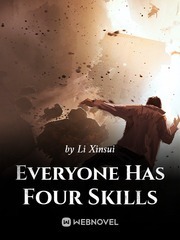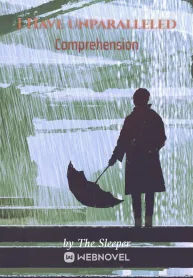Chapter 523 Special battle
The Soviet army's attack on Mamayev Gang and the German army's attack on the cemetery started almost simultaneously.
The offensive mission in the direction of the Soviet army was performed by the 39th Guards Infantry Regiment.
This is Golikov's brilliance.
First of all, there are not many German troops in Mamayev Post. There is only one battalion of more than 300 people, and it is still in a state of lack of equipment and supplies... There is no doubt that the German supplies and equipment must be more investment. Among the main forces attacking the hospital, the troops staying at Mamayev Post were temporarily "grieved". After all, they occupied a favorable location, and at the same time, it was night, so it was unlikely that the enemy would attack and occupy Mamayev Post.
So, this is not a question of strength. A regiment of the Soviet army already has a sufficient strength advantage over a battalion of the enemy.
Secondly, the more important issue is the issue of night battle command.
If two regiments are deployed at the same time, and these two regiments lack communication equipment, even the commander will not know where his troops are when they are released to fight, and accidental injuries will easily occur.
So Golikov simply let the 39th Guards Regiment, which has a stronger combat effectiveness, operate.
As soon as the Soviet army launched an offensive, it was overwhelming...As usual, there was a firepower preparation first, and then a large number of infantry rushed towards the high ground.
But such a charge still had little effect. The reason was that the German army had laid enough barbed wire and mines on the front of the battlefield, and the 39th regiment of the Soviet army was not good at night fighting, so they were at a stalemate.
The more intense fight is in the direction of the cemetery.
A German infantry battalion advanced towards the cemetery under the cover of tanks and assault guns.
They thought they would be stopped before reaching the cemetery, but that was not the case.
Shulka is not that stupid.
Stopping too early means that the German army still has the opportunity to cooperate with the infantry and tanks, which will make the cemetery lose its meaning... If there is any use, it can serve as a concealment and cover.
But assault guns can penetrate even bunkers, and of course destroy tombstones.
So, Shulka released about two hundred meters in front of the tombstone, with nothing but some anti-personnel mines buried.
The reason why this distance is "two hundred meters" is because Shulka knows that tanks exceeding this distance in the dark are basically blind... They may be able to see the target with the help of flares, or they may be able to see the target with the help of tracer bullets. Know the location of the target.
However, the gunner observes the target in the tank by observing the outside world through the periscope, and what they see is a flat, two-dimensional image.
If it is daytime, they can calculate the distance of the target according to the size of the surrounding buildings, trees or people, and adjust the elements accordingly.
But at night, the flares only illuminate a limited area, and at the same time they are flickering and there are many shadows... This makes it very difficult for the gunner to measure the distance.
Experienced gunners can still measure the distance by feeling for targets within 200 meters. For targets beyond 200 meters, it basically depends on luck.
The German army hesitated in the border area of the cemetery, but with Edmund's order, the infantry crossed the tank and entered the cemetery.
"Pay attention to maintaining formation!" Edmund ordered: "Our tanks will provide you with cover!"
What Edmund said was not empty words, he did exactly that... Tanks in other directions cannot advance, but there is one place where they can, and that is the middle road.
So, Edmond's offensive plan is: to place heavy troops on both sides closest to the road, and they are kept at the same level as the tanks, so that the soldiers can cover the tanks and the tanks can also provide firepower for the soldiers.
The tank "rumbling" stepped forward, and the engineers in front hurriedly dragged the corpses lying on the road away to clear a way for the tanks.
But the cars that were blown up were not so lucky... No one rushed to drag them, they could only be pushed aside with tanks, including the bodies of German soldiers who did not have time to escape in the cars.
This is one of the reasons why so many soldiers "missed" on the battlefield. Their bodies would be burnt beyond recognition and no one would recognize them, even their badges.
The body could not be identified and the person on the other side could not be found, so it could only be treated as "missing".
At the beginning, it was smooth, and the German army advanced several hundred meters without any surprises.
But the battle begins when a German tank runs over an anti-tank mine...
"Hit!" Shulka ordered, and at the same time pulled the ignited grenade and threw it towards the other end of the tombstone.
Like Shulka, other Soviet soldiers also pulled incendiary grenades and threw them in the direction of the enemy.
At the same time, the shovel mortars in the hands of the Soviet army in the rear also fired shells intensively.
This is a consensus reached before the battle.
Combat in the cemetery has its own particularity. There are tombstones everywhere that bullets cannot penetrate, so the most effective equipment for fighting in it is not a rifle.
Because the shooting range of the rifle is always blocked by the tombstone, the target often just passes through the gap in a flash, and the shooter often has no time to pull the trigger to hit the target.
The most effective at this time should be grenades and mortars. Their parabolic trajectory can make them bypass the tombstone and hit large positions.
What is more beneficial to the Soviet army is that the throwing grenade will not be discovered by the enemy because of the sound of gunshots and flames... A grenade fell from the sky, and it may be thrown from any point on the fan within 50 meters in front .
The Soviet army can largely know the German offensive line based on the position of the German tanks on the road.
Who told the German army to maintain its formation at this time and still refuse to give up the coordination of infantry and tanks?
That is to say, it was their tanks that exposed the position of the German infantry, and this was fatal.
The German soldiers were obviously not prepared for this, so in a series of explosions, the German army was blown up and screamed.
They wanted to use grenades to fight back, but they didn't know the enemy's position at all, and there was almost no possibility of hitting the target if they fired blindly.
So most of the German troops chose to fight back with guns.
This is a normal reaction, and they also want to find the enemy's position.
But what they don't know is that this makes their situation even worse.
As soon as the gunshot rang out, the Soviet army determined the position of the German army based on the gunshot and the muzzle flame. Soon, a few grenades were thrown nearby, and there were a few "booms" and screams.
Among them, the machine gun is the worst, as soon as its gunshot sounds, it will be greeted by a burst of grenades or mortars.
Some German soldiers seemed to know something. They chose not to shoot, and then approached the enemy's line of defense under the cover of the tombstone.
This method is correct, as long as they don't make too much noise, it will be difficult to be detected even in front of the Soviet army.
However, they soon discovered that things were not so simple, because their feet had stumbled on the barbed wire on the ground, and there were rows of tin boxes tied to the barbed wire.
(end of this chapter)
RECENTLY UPDATES







